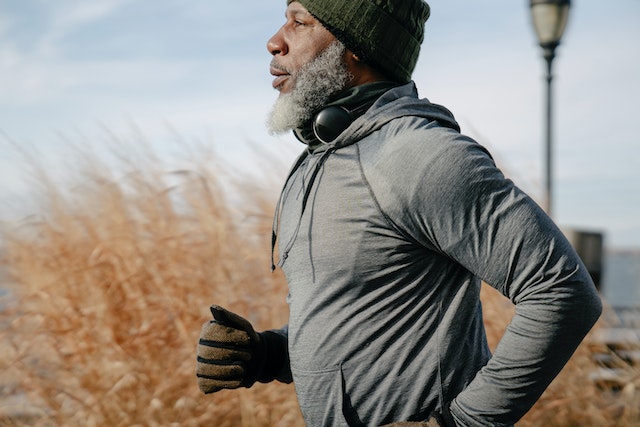Whole, Fresh Diet for Health
In a first attempt to gauge global diet, doctors measured 15 fruits, vegetables, legumes, whole grains, nuts, seeds, calcium, fiber, omega-3s, and other fatty acids, milk, red and processed meats, sugar-sweetened beverages, trans-fats, and sodium in populations in 195 countries over 18 years through 2017. During this time, more than half of worldwide diet-related deaths had links to high sodium, and low whole grains and fruits. Low amounts of healthy foods were more important than high levels of unhealthy foods, and poor diet caused more deaths than high blood pressure, high blood sugar, diabetes, tobacco, alcohol, and pollution, regardless of age, gender, or income.
Reference: The Lancet; April, 2019, Published Online
We can all agree that eating a healthy diet is key to a healthy self, but we can’t always get the nutrients we need in even the healthiest of diets. Vitality and longevity, reaching the oldest of ages in the best shape possible, is a growing interest in research for healthy living. In the following studies, targeted nutrients proved helpful in addressing various areas of importance connected to aging well:
Lutein, zeaxanthin preserve muscle and bone
The body’s ability to fight oxidation decreases with age, which can lead to frailty; reduced muscle mass, strength, bone density, and physical function. Older adults may help preserve physical strength and function by adding carotenoid antioxidants such as lutein and zeaxanthin to the diet. In this study of 4,513 independently living adults over age 50, doctors measured circulating levels of lutein and zeaxanthin, bone mass, and tests of strength and agility.
Over eight years of follow-up, participants who were non-frail at the start of the study, and who had begun with higher levels of lutein and zeaxanthin, were less likely to progress to frailty. To determine frailty, doctors used several measures, including walking speed, rising from a seated position, hand-grip strength, and bone mass at the heel of the foot.
For each increase of 100 nanomoles per liter of blood in lutein and zeaxanthin levels, chances were on average 15 and 35 percent less likely, respectively, for participants to progress to a higher category of frailty.
Reference: Experimental Gerontology; January 2023, Vol. 171, Article No. 112013
Multivitamins improved cognition
To see if multivitamins could improve cognition in older adults, 2,262 men and women, aged 72 to 79, took a daily placebo or standard multivitamin-mineral while doctors followed up for three years. Once a year, participants took a standardized battery of cognitive tests administered by doctors over the phone.
After three years, those taking the multivitamin-mineral saw significant improvement in memory of everyday events, executive function, and in global cognitive function, which improved 27 percent compared to placebo. Participants with a history of heart and circulatory disease who had taken the placebo saw cognitive decline after a year, while those who had taken the multivitamin remained stable. Compared to those with heart and circulatory conditions, those without had better cognitive performance regardless of placebo or multivitamin.
Reference: Alzheimer’s & Dementia; September, 2022, Article No. 12767
Taurine antioxidant effects
Aging causes oxidative stress to increase, impairing the structure and function of cells, tissues, and organs. In this study, 24 women, aged 55 to 70, took a placebo or .75 gram of taurine twice per day. Over 16 weeks, participants performed agility and dynamic balance tests and handgrip strength tests.
By the end of the study, those taking taurine saw a 20 percent increase in levels of the antioxidant superoxide dismutase (SOD) compared to the start while the placebo group saw a decline of 3.5 percent. SOD protects cells from oxidative stress. A marker for oxidative stress, malondialdehyde, increased for the placebo group while remaining stable in the taurine group.
Commenting on the results, doctors said taurine is capable of controlling oxidative stress in the aging process.
Reference: Nutrition; 2022, Article No. 111706
Vitamin C may maintain mature muscle mass
Men and women do not get enough
“Vitamin C helps defend body cells and tissues from potentially harmful free radical substances which, unopposed, can contribute to destruction of muscle, speeding up age-related decline,” doctors said. Here, doctors calculated skeletal muscle mass and vitamin C levels in 13,000 people, aged 42 to 82. Half the women, and 60 percent of the men were not consuming enough vitamin C.
In those with sufficient levels of vitamin C, fat-free mass as a percentage of total body mass was 1.6 percent higher in men and 3.4 percent higher in women, compared to those insufficient in vitamin C. Also, BMI fat-free mass scores were 2.0 percent higher in men and 3.9 percent higher in women, comparing those sufficient in vitamin C to those who were insufficient. “To our knowledge, this is the first study assessing the relation of dietary and circulating vitamin C with loss of skeletal muscle mass,” doctors said.
Reference: Journal of Nutrition; 2020, Vol. 150, No. 10, 2789-98
BetsyHealth Note: This statement has not been evaluated by the Food and Drug Administration. This product is not intended to diagnose, treat, cure or prevent any disease. If you are pregnant or nursing, taking medication, have a medical condition or planning surgery, consult a doctor before using this product. Stop using and consult a doctor if any adverse reactions occur.
Article copyright 2023 by Natural Insights for Wellbeing. All rights reserved. Used with permission.
Photo by Barbara Olsen :


